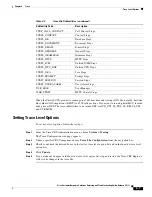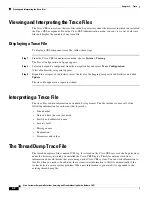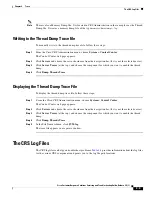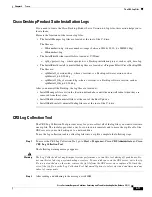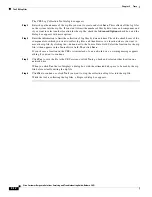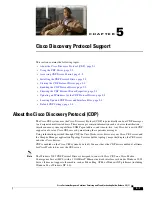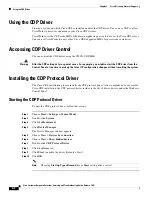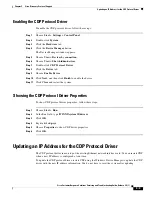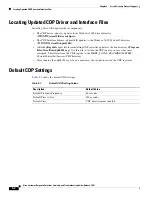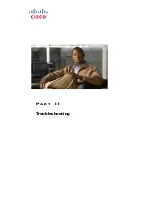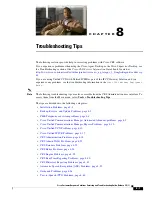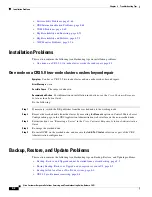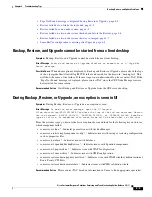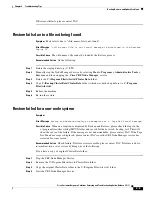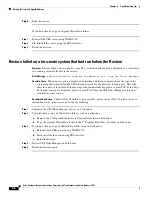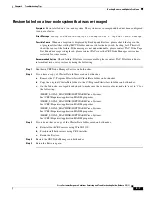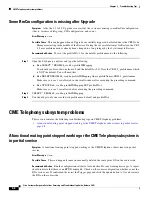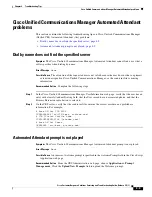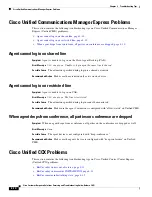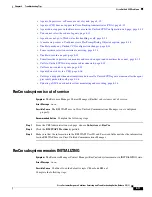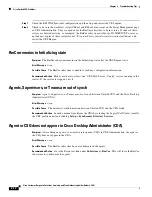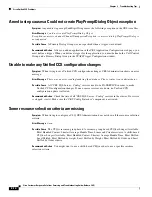
C H A P T E R
7-1
Cisco Customer Response Solutions Servicing and Troubleshooting Guide, Release 5.0(1)
7
Diagnosing and Correcting Cisco CRS Problems
The troubleshooting section describes problems that you might encounter when using the Cisco
Customer Response Solutions (CRS) system. For each problem, this manual lists symptoms, possible
causes, and corrective actions that you can take.
This section assumes that you are familiar with the CRS Administration web interface, CRS trace and
log files, and various Windows administrative tasks. For more information, refer to the
Cisco Customer
Response Solutions Administration Guide
and your Windows documentation.
This chapter contains the following topic:
•
General Troubleshooting Steps, page 7-1
General Troubleshooting Steps
The following troubleshooting steps can help you diagnose most problems with your Cisco CRS
products:
Step 1
Verify that Cisco Unified Communications Manager is running.
Step 2
Verify that the Cisco CRS Node Manager service is registered.
Step 3
Verify that you uploaded the application.aef files to the repository using the Script Management page
and that you refreshed the CRS Engine after making a change to an application.
Step 4
Refer to the Release Notes for known problems.
Step 5
Verify that the Cisco CRS Node Manager service is running under a user account with Administrator
privileges.
Step 6
Stop and start the Internet Information Server (IIS).
Step 7
Save log files to prevent them from being overwritten.
Step 8
Save the application (.aef) file.
Step 9
Before debugging CRS Administration problems, turn on the Debugging trace level option for the ADM
subfacility.
The detailed output will be in the following file:
c:\program files\wfavvid\log\MADM\jvm.stdout
Summary of Contents for Cisco Unified Queue Manager
Page 21: ...P A R T I Serviceability ...
Page 22: ......
Page 61: ...P A R T I I Troubleshooting ...
Page 62: ......

